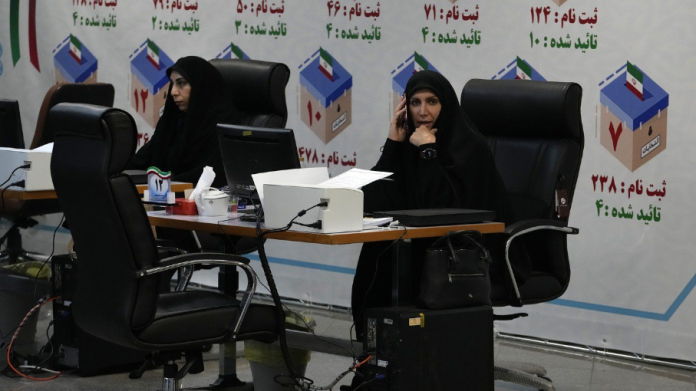Iran’s state media said Vahid Haghanian, under US sanctions, is among the candidates who registered today to become Iran’s next president, Reuters said.
Vahid Haghanian, a former commander of the Islamic Revolutionary Guards, registered today to become Iran’s next president following the death of Ebrahim Raisi in a helicopter crash on 19 May.
Haghanian, a close aide to Supreme Leader Ayatollah Ali Khamenei, told reporters after registering that his qualifications are based on “experience from serving 45 years in the presidency and the leader’s office.”
In 2019, the US Treasury Department listed Haghanian as one of nine individuals in Khamenei’s inner circle, the “inner circle responsible for advancing… domestic and foreign oppression.” Iran, for its part, says most US sanctions are due to unfounded accusations.
Other candidates
Besides Haghanian, former parliament speaker Ali Larijani, a prominent conservative, was among the candidates registered yesterday, as was Abdolnaser Hemmati, a former central bank governor.
Saeed Jalili, a former chief nuclear negotiator who ran Khamenei’s office for four years two decades ago, was the first hard-line heavyweight to register to run in election. On Tuesday, Mohammad Baqer Qalibaf, another former Revolutionary Guard commander was elected speaker of parliament, reducing his chances. Iranian media also mentioned Interim President Mohammad Mokhber as a possible candidate.
A spokesman for the electoral commission told reporters today that 12 candidates have registered since the election process began on 28 June. The Guardian Council will release the list of qualified candidates on 11 June.
Raisi’s death has triggered a race among hardliners to influence the choice of the country’s next leader. After a five-day registration period, the clergy-led Guardian Council will vet candidates running for president. Restrictions on choices on ballot papers and growing discontent over a number of political, social and economic crises may affect voter turnout.
In Iran’s complex structure of clerical rulers and elected officials, Khamenei has the final say on all state issues such as nuclear and foreign policy. But the president-elect will be responsible for addressing growing economic difficulties.
